Ostrich in Medieval China November 19, 2017
Author: Beach Combing | in : Medieval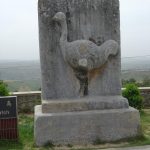
Chinese Ostriches The Qianling Mausoleum was used for three hundred years (from the seventh to the very early tenth century) by Tang dynasty emperors and their court officials. It includes, in some of its magnificent stone sculptures, a large flightless bird, pictured above. This bird is clearly an ostrich, which begs a number of questions. […]
Immortal Meals #35: Bewitched Chinese Dancing Horses October 28, 2017
Author: Beach Combing | in : Medieval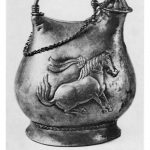
It is a WIBT (wish I’d been there) moment from Chinese history. One night in the mid-late eighth century the warriors of the Chinese warlord Ch’Eng-szu (704-778) were preparing a sacrificial feast. Some struck up music to add to the festive atmosphere when suddenly a very strange thing. Dozens of the war horses in the field […]
Chinese in Roman London? October 2, 2016
Author: Beach Combing | in : Ancient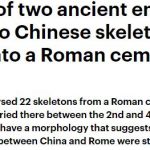
Chinese in Roman London? It is well known that the Roman empire was a cosmopolitan place, even a tedious, sorry backwater like Britannia. The combination of soldiers, slaves and solid economic infrastructure meant unprecedented movement of individuals. However, what about the history story of the week, the claim that two Chinese bodies have been dug […]
Burning Library: Galen in Chinese Shorthand August 10, 2016
Author: Beach Combing | in : Ancient, Medieval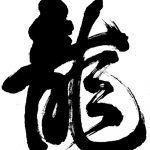
The Arab writer Ibn al-Nadim included this extraordinary record of contact between east and west in his Index of the Sciences, finished in 988. He is reporting an encounter between a Chinese student, visiting Baghdad, al-Razi, perhaps the greatest of the Persian writers of the golden age, and the writings of Galen, the greatest Mediterranean […]
Painting on Water May 6, 2016
Author: Beach Combing | in : Medieval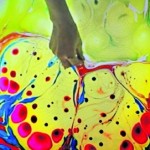
The strangest painting technique ever employed? The Mountain Man of Fan-Yang, an artist from T’ang China perhaps holds the prize in what for Europe would have been the early Middle Ages. The Mountain Man’s preferred method was as follows: as you remember this think about a French or Irish monk inking a manuscript. Mountain man […]
Weird Chinese Painters April 17, 2016
Author: Beach Combing | in : Medieval
Modern painters have used blood and vomit as paints and penis, breasts and even eyes as brushes. However, the medieval Chinese sometimes gave the modern paper-tearers a run for their money. Wang Hsia (obit 805), for example, was known as ‘ink-flinger Wang’. He would, first, get drunk, second, hurl ink at his surfaces, third, smear […]
Emperor Stars in Anti-Colonial Play June 20, 2015
Author: Beach Combing | in : Contemporary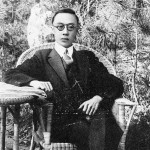
Puyu (obit 1967) has gone down in history as the last Chinese emperor, not including of course Mao and his successors, and what a life he had. Brought up in the Forbidden Palace he was perhaps the most spoilt boy in the world: having servants beaten for a whim; this perhaps made up for the […]
The Manufacture of Chinese Wildmen May 4, 2015
Author: Beach Combing | in : Modern
This comes from a British newspaper and 1892. It appeared in a curiosity column along with an item on marrying trees (really!). All this to say that this material should probably be treated with circumspection if not downright superstition. Or perhaps someone recognizes an obscure Chinese custom or institution: drbeachcombing AT yahoo DOT com Beach would […]
Jacob of Edessa’s America March 9, 2015
Author: Beach Combing | in : Ancient, Medieval
Many readers of Beachcombing will know Beach’s fellow bizarrist, Esoterx, who writes fascinating posts about ancient, medieval and modern history and in Beach’s humble opinion has the best and wittiest headlines on the internet: a recent discussion of Hellenic religion was called, for example, ‘Muppet Theology’. Often Beach knows Esoterx’s sources, as the two share […]
Totalitarian Jiang and The Sound of Music February 11, 2015
Author: Beach Combing | in : Contemporary
There are few things as entertaining as a power struggle in the upper echelons of a totalitarian state. What could be better than glimpses of profoundly unpleasant people, with an endearing lack of boundaries, doing profoundly unpleasant things, to slightly or momentarily less powerful unpleasant people? Perhaps it is the closest we get to an […]
Immortal Meals #18: Breakfast in the Forbidden Palace December 17, 2014
Author: Beach Combing | in : Modern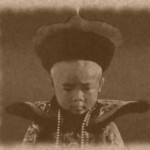
The month is March 1912, the day unspecified, but you walk into the dining room in the Forbidden Palace in Peking and one breakfast is much like any other. The sole guest is about to have breakfast and the twenty five dishes for this important meal have just been laid out by the eunuchs. Beach […]
Was Leonardo’s Mother a Slave (Chinese or Otherwise)? December 6, 2014
Author: Beach Combing | in : Medieval, Modern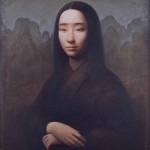
Madness on the internet in the last few days with the announcement that Leonardo da Vinci’s mother was a Chinese slave and that she is the Mona Lisa. Many readers will have stumbled upon this theory and enjoyed its improbability, but they may not know that there has been almost ten years of similar theories […]
The Children Tree November 18, 2014
Author: Beach Combing | in : Medieval
There are some rare accounts from the middle ages (though not from antiquity?) of trees that are alive. The following comes from the great eighth-century Chinese geographer Du You. Du You is talking here of the Dashi, the Chinese word for the Arabs, that have just started to come onto the horizon with the Islamic […]
The Pleasure of He Who Longs to Cross the Horizons November 12, 2014
Author: Beach Combing | in : Ancient, Medieval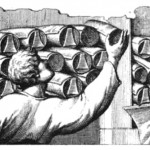
A good book title should be like a good wine. It sits on your tongue and then spreads and then evokes… And there can be no genre of scholarly writing that evokes better than geography and travel literature the discoveries of those who, to respectfully rephrase one of the titles below, dared the horizon. Beach […]
Immortal Meals #16: Stalin Meets China September 24, 2014
Author: Beach Combing | in : Contemporary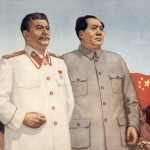
An immortal meal from 30 July 1949,* which took place at Stalin’s dacha in Kuntsevo. Present were Stalin himself, several politburo members and a number of the leaders (minus Mao) of the Chinese communist party, including Liu Shaoqi (obit 1969) . The reception is interesting from several points of view: a) because rarely have so many mass […]


